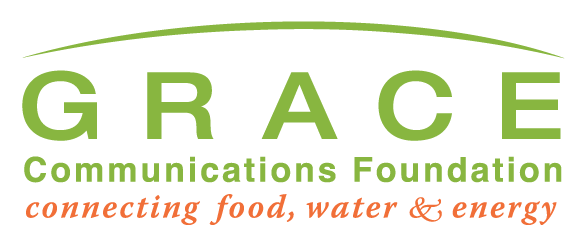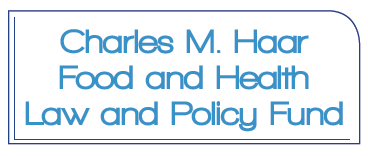About Us
Every five or so years Congress passes omnibus legislation known as the “farm bill” authorizing a broad array of programs and services that shape virtually every aspect of the American food and agricultural systems. The farm bill grew out of Depression-era agricultural policies, and though it is regularly updated, many contend that contemporary farm bills fail 1) to provide adequate affordable and healthy food, 2) to sufficiently protect our environment, and 3) to meet the needs of low-income and minority communities.
Substantively engaging with the farm bill—and identifying viable steps toward reform—is difficult because the legislation is long, complex, and highly specialized. For this reason, FBLE brings together a variety of academic and clinical programs with expertise in food, agriculture, nutrition and the environment to provide research and recommendations that cut across traditional boundaries in order to promote the ideas proposed by expert organizations as well as seek novel solutions. In addition, FBLE provides law students throughout the country with research opportunities through the Food Law Student Network.
Our Members
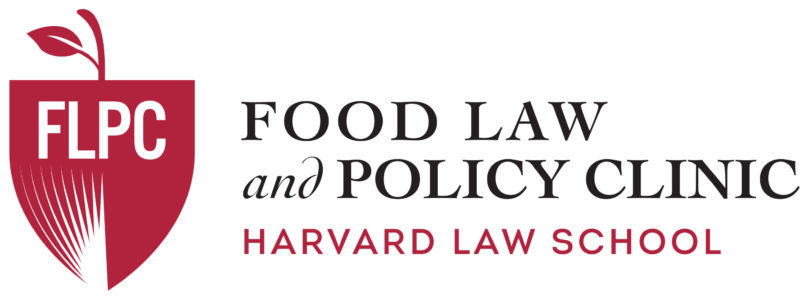
Harvard Law School, Food Law and Policy Clinic
The Food Law and Policy Clinic of Harvard Law School (FLPC), a division of the Center for Health Law and Policy Innovation, was established in 2010 to link Harvard Law School students with opportunities to work with clients and communities on various food law and policy issues. The FLPC provides legal and policy guidance to a range of clients seeking to increase access to healthy foods, assist small and sustainable farmers in breaking into new commercial markets, and reduce waste of healthy, wholesome food, while educating law students about ways to use law and policy to impact the food system. The FLPC engages a strong policy orientation as well as substantive expertise in the food system to assist a range of federal, state, and local clients around the world in understanding the legal and policy regimes that apply to food production and sales.
Key Individuals: Emma Scott, Emily Broad Leib, Trevor Findley, Gray Norton, Tori Oto, Heather Latino and Nate Rosenberg
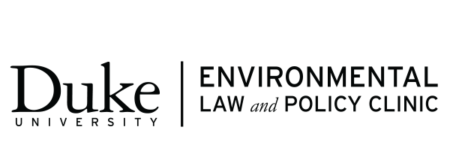
Duke Environmental Law and Policy Clinic
The Duke Environmental Law and Policy Clinic uses an interdisciplinary approach to work on a wide variety of environmental and public health matters. The Clinic serves non-profit organizations representing low-wealth communities throughout the United States and Africa, with a focus on clients serving the Southeastern United States. The Clinic has represented community organizations in cases that stopped large polluters from damaging their health and environment, recently preventing the construction of a Navy landing field and a large coal-burning cement kiln.
Key Individuals: Michelle Nowlin, Lee Miller

Harvard Law School, Emmett Environmental Law & Policy Clinic
The Emmett Environmental Law and Policy Clinic at Harvard Law School offers students the opportunity to practice environmental law through work on a variety of litigation, administrative, legislative, and policy projects. The Clinic works with scientists, medical professionals, nonprofit and public interest organizations, and government clients on environmental and energy issues at the federal, state, and local level. The work includes writing briefs and comment letters, drafting climate change mitigation and adaptation regulations and policies for municipalities, preparing guidance documents and manuals for non-lawyers, drafting model legislation, and preparing policy papers. The Clinic develops novel strategies to address thorny environmental problems; investigates new cases; works with scientific, economic, and policy experts to help them present their views about the impacts of legal reforms; advises citizen scientists; and convenes meetings of policy-makers and regulators.
Key Individuals: Andrew Mergen
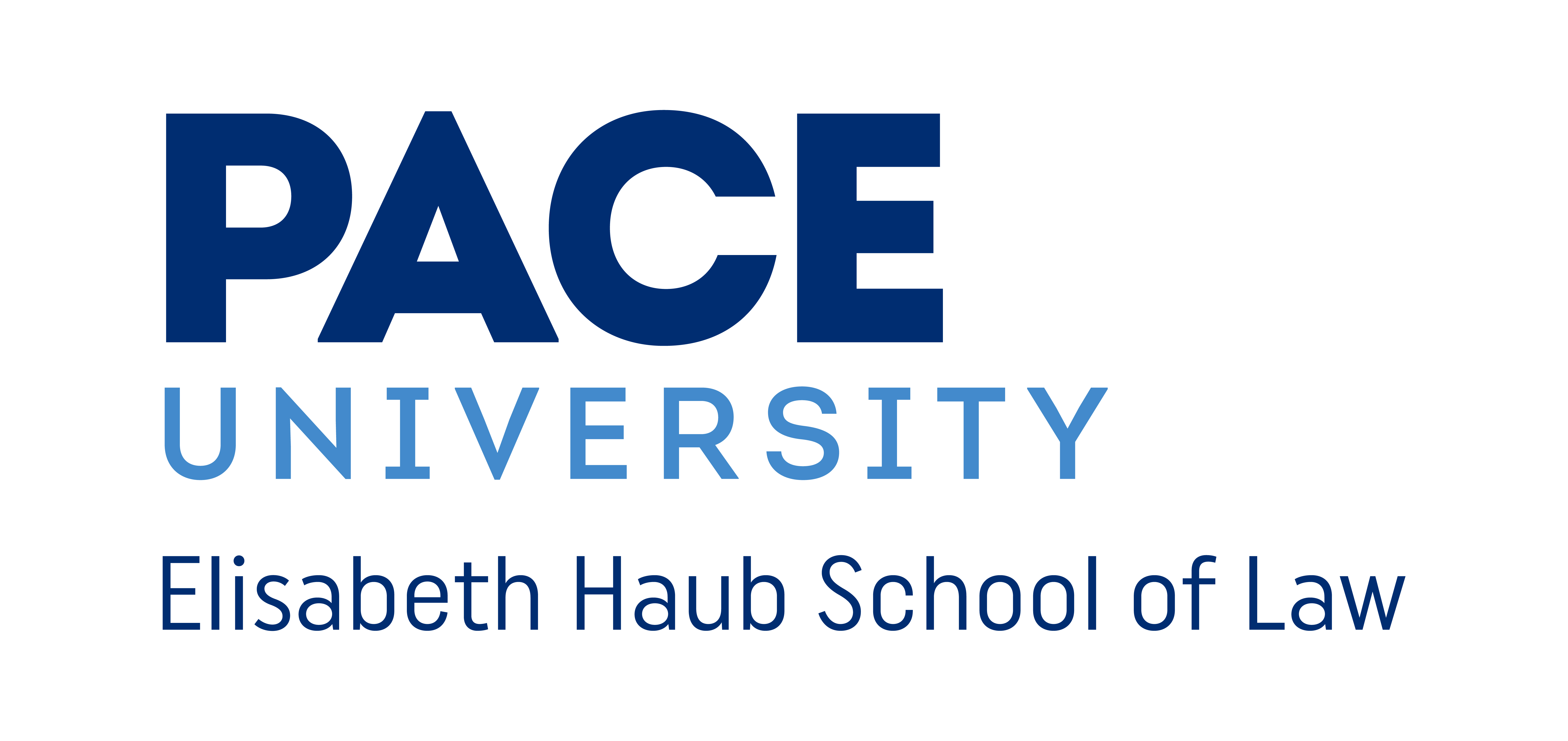
Pace University Elisabeth Haub School of Law, Food Law Center
The Pace Food Law Center at the Elisabeth Haub School of Law supports legal services and advocacy, academic scholarship, and student learning. The Center’s legal services and advocacy projects support the transition to a just and sustainable food system by providing direct legal services to small farm and food businesses and related nonprofits through the Food and Farm Business Law Clinic; offering focused legal training; and advocating for systemic policy changes at the local, state, regional, and federal levels. The Center supports the development of food law scholarship, seeking to advance understanding of the role of law in shaping the food system. And in all its programming the Center offers opportunities for students to engage in food law, including through coursework, clinical work, externship placements, career counseling, and research opportunities.
Key Individual: Margot Pollans, Josh Galperin, Jonathan Brown, Camden Smithtro
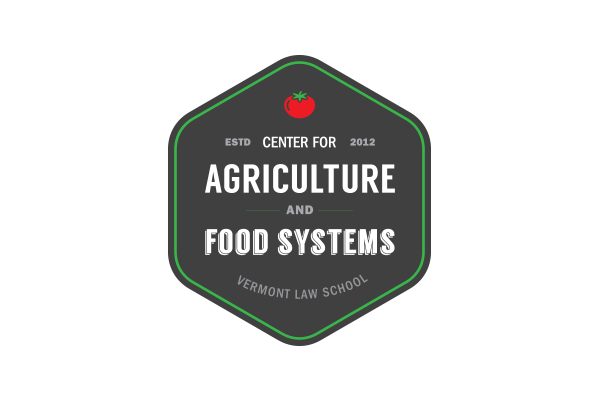
Vermont Law School, Center for Agriculture and Food Systems
The Vermont Law School Center for Agriculture and Food Systems (CAFS) aims both to train the next generation of food and agriculture advocates and entrepreneurs and to create innovative legal tools supporting the new food movement. A hub of advocacy innovation, CAFS collaborates with partners to produce legal tools that advance smart market and policy initiatives geared toward improving the food system and its impact on the environment, public health, local economies, food security and animal welfare. CAFS creates legal tools for an array of food system stakeholders, including farmers, food producers, food entrepreneurs, consumers, legislators, administrators and healthcare professionals.
Key Individuals: Laurie Beyranevand, Emily Spiegel, Francine Miller, Liz Turner
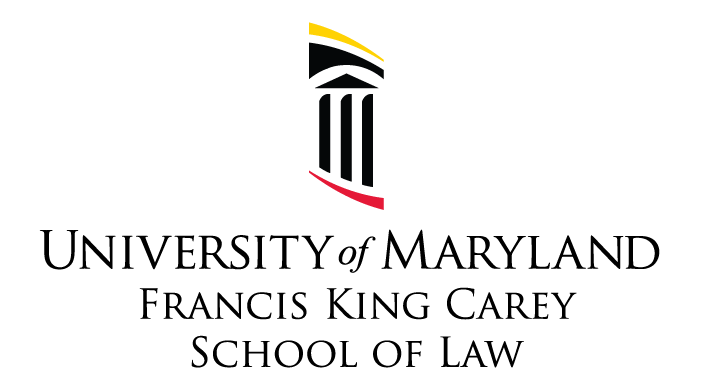
University of Maryland Francis King Carey School of Law, Environmental Law Program
Key Individuals: Bill Piermattei, Margaret Todd

Drake Agricultural Law Center
Founded at Drake University in 1983, the Agricultural Law Center is internationally recognized for the study of how the legal system shapes our food system and influences the ability of the agricultural sector to produce, market and utilize agricultural products. The Center facilitates the Drake University Law School’s certification program in food and agricultural law. Students learn about legal issues involving the full scope of food and agriculture, including marketing and finance, biotechnology, international trade, tax planning, soil and water conservation, land use and environmental issues, food safety and federal farm programs.
In addition to training America’s future agriculture and food law attorneys, the Center conducts original policy research focused on helping farmers, landowners, and business owners succeed in their pursuits. From wind energy to contract livestock production, garden policy to new farmers, food policy councils to climate change and agriculture, the Center is continually forward looking to identify, understand, and develop farmer focused legal and policy solutions to make food and agriculture more sustainable industries.
Key Individuals: Jennifer Zwagerman
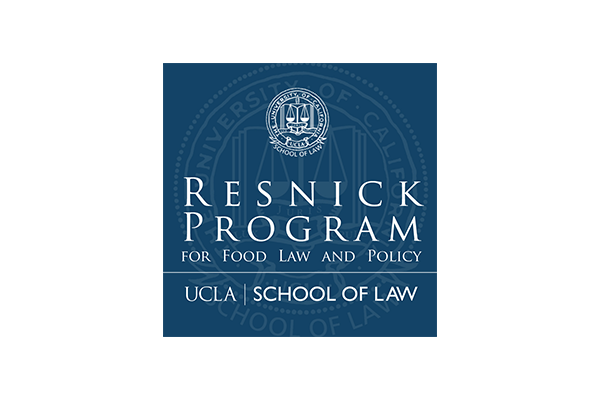
UCLA School of Law, Resnick Center for Food Law and Policy
The UCLA School of Law Resnick Center for Food Law and Policy is a think tank that seeks legal and policy solutions in support of a food system that yields improved health and sustainability outcomes. The Center publishes and disseminates legal scholarship and policy analysis on food issues, works on projects that shape the food system, and trains food law and policy leaders, scholars, and practitioners. In addition, the Center recently worked with the rest of the UCLA School of Law to launch a Food Law and Policy Clinic, aimed at bringing new legal services to organizations that are expanding healthy food access and improving food environments, as well as those that are engaged in supporting a transition to sustainable food production and distribution.
Key Individuals: Diana Winters
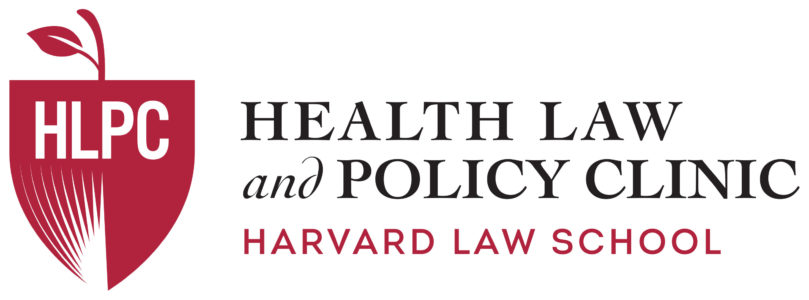
Harvard Law School, Health Law and Policy Clinic
The Harvard Law School Health Law and Policy Clinic (HLPC) is a division of the Center for Health Law and Policy Innovation (CHLPI). HLPC is committed to improving the health of vulnerable populations, including people living with HIV/AIDS. HLPC works on cutting-edge legislative, regulatory, and litigation projects at the state and national levels aimed at increasing access to quality, comprehensive health care for poor and low-income individuals and families. HLPC focuses on changing healthcare systems, educating on healthcare reform issues, and building and supporting coalition infrastructure and advocacy capacity among people living with HIV/AIDS and service providers.
Key Individuals: Katie Garfield
Environmental & Natural Resources Law Clinic, Widener University Delaware Law School
Key Individuals: Sarah Everhart
The opinions expressed on this website are the author(s)’s own and do not necessarily reflect the views of the above institutions.
Our Shared Mission & Values
Our mission is to work toward a farm bill that reflects a thoughtful consideration of the long-term needs of our society, including economic opportunity and stability; public health and nutrition; climate change mitigation and adaptation; public resources stewardship; and racial and socioeconomic justice. We strive to achieve justice and equity in accomplishing each of these goals.
We accomplish this mission through joint research, analysis, and advocacy and by drawing on the experience of our members, collaboratively building deeper knowledge, and equipping the next generation of legal practitioners to engage with the farm bill.
Economic Opportunity and Stability, including equitable access to capital, scale-appropriate risk management, market stability, a viable livelihood for diverse production systems and diverse producers, expanded worker-ownership, and a vibrant agricultural sector.
Public Health and Nutrition, including a robust and secure food supply that meets the present and future nutritional needs of all communities, improves population-level health, reduces inequalities, and prioritizes production of healthful foods.
Climate Change Mitigation and Adaptation, including the transformation of agriculture into a net sink through reduced emissions and the use of soil and biomass as a carbon sink, as well as support for farmers adapting to climate impacts such as drought, extreme weather events, and changing growing seasons.
Public Resources Stewardship, including agricultural practices that increase biodiversity and soil stability and fertility, while promoting public health and environmental justice by preserving community resources such as safe drinking water and clean air.
Racial and Socioeconomic Justice, including labor rights, diverse and equitable opportunities in agriculture, robust competition that creates space for small and mid-size, new, and innovative participants and checks concentrated power, equitable distribution of agriculture’s costs and benefits, and fair contracts and labor practices.
Our Funding Partners
FBLE is grateful for the financial support of the Charles M. Haar Food and Health Law and Policy Fund, GRACE Communications Foundation, the Yale Law Journal Public Interest Fellowship, and two very generous Anonymous contributors.
